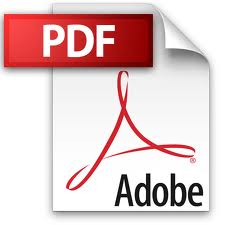| * |
|
Sustainable Metrics for Unit Assembly Processes Project
Summary:Industry needs assessment methods to make verifiable predictions of the energy and material consumption associated with a variety of manufacturing assembly processes. The current uses of ad hoc methods, which result in untraceable predictions, do not meet this need. The main problem is that there are no national or international standards on which make such predictions. This project will develop and deploy advances in measurement science to develop standards-based computational methods for computing energy and material efficiency in manufacturing assembly processes. In addition, the project will provide (1) specifications, such as nomenclature, mathematical formulations, and information models, and (2) reporting methods that will allow the results of those methods to be shared with other projects in this program. The project work will include the development of the needed measurement standards and facilitating industry adoption of those standards for sustainable manufacturing assembly processes. Lastly, this project will develop and demonstrate validation tools to enable manufacturing industries to have traceability to those sustainable manufacturing assembly standards. Description:Objective: Develop and deploy advances in measurement science and standards to assess the sustainability performance, including energy and material efficiency, in manufacturing assembly processes and assembled parts for discrete part manufacturing industries by 2014. (1) Unit manufacturing assembly processes for sustainability: Unit manufacturing assembly processes1 comprise single operations such as welding, fastening, and press fitting. For them, process characterization includes (1) description of unit manufacturing assembly process operations, workpieces transformation, equipment characteristics, loading-unloading, and transportation among assembly workstations or assembly lines; (2) definitions of core and supplemental sustainability performance indicators and common computable sustainability metrics; (3) formal information model that defines a sustainable assembly process plan, which is the major input to the computational methods; and (4) assembly process-specific data sets that instantiate the information models and enable execution of computable metrics for specified scenarios. (2) Aggregation: Frequently, assembled parts require multiple unit processes. New mathematical formulations and the associated computational methods will be developed to compute energy and material consumptions in assembly processes. Further, we will develop a prototype toolset to demonstrate the implementation of those methods.
What is the research plan? 1. Identify potential industry partners, verify the measurement issues, and understand the state of the art and practice (Q1&2 FY12) 1.1 Organize workshop on metrics, methods, and tools for assembly sustainability. The anticipated issues faced by manufacturers include lack of a glossary, sustainability measurement guidelines, and standardization roadmap. 1.2 Conduct a review of the state of the art and practice in computational methods for assessing energy and material consumptions in assembly. Gate: sufficient evidence of industry needs and participations.
2. Design measurement science for sustainable assembly (Q2 FY12) 2.1 Specify the scope and purpose of developing measurement science for assembly processes and assembled product. 2.2 Define key components and their relationships with stakeholders 2.3 Develop requirements for specifications and toolset.
3. Develop a glossary and taxonomy for manufacturing assembly process nomenclature (Q3&4 FY12) 3.1 Develop a glossary and taxonomy architecture for specifying major components and their relationships and rules to extend the glossary and taxonomy. 3.2 Define a glossary with concepts, technical terms, definitions, attributes, and relationships, identified by stakeholders 3.3 Develop a unit assembly process taxonomy 3.4 Test the developed glossary and taxonomy with real cases from customers/partners Gate: the developed glossary as a work item accepted by stakeholders
4. Specify methods of measuring sustainability in assembly and reporting methods (FY13) 4.1 Define needed core and supplemental indicators and metrics on energy and material consumption 4.2 Develop computing methods for energy and material metrics to provide traceable/verifiable measurement results with expressions of uncertainty 4.3 Develop reporting mechanism for manufacturers, including forms and toolkit, to report sustainability in assembled parts to customers 4.4 Develop reference model of assembly processes and assembled parts. Gate: successful demonstration of conceptual tools in the infrastructure using real-world problems and accepted by stakeholders
5. Develop and deploy a set of tools for validation of mathematical methods (FY14) 5.1 Identify concepts and attributes in an integrated information model 5.2 Develop a software architecture and toolset 5.3 Develop set of forms and toolset for reporting sustainability 5.4 Transfer the technology to stakeholders Major Accomplishments:
Recent Results:
Results from previous work that are readily applicable to this project are in indicator repository and a high-level specification of a sustainability measurement architecture.
Standards and Codes: Specific standards to be developed include glossary, taxonomy, metrics, mathematical models, assembly process characterization, measurement guidelines, and sustainability reporting methods for energy and material assessment in manufacturing assembly processes. We will bring results for standardization in ASTM E60 Sustainability, ASME sustainable processes and products, and/or ISO Technical Committee (TC) 207 on Environmental Management (http://www.tc207.org). TC207 is responsible for developing the ISO 14000 series of standards and guidance documents to support sustainable development. Specifically, our standard activities will be in TC207 Subcommittee (SC) 4 on Environmental Performance Evaluation and TC207/SC5 on Life Cycle Assessment. Since the U.S. companies’ suppliers and customers are world-wide, our stakeholders will benefit from the ISO standards that are on measuring unit assembly processes and reporting traceable/verifiable sustainability data in assemblies.
|
Start Date:October 1, 2011Lead Organizational Unit:elStaff:Related Programs and Projects:Contact
General Information: 100 Bureau Drive, M/S 8260 |

